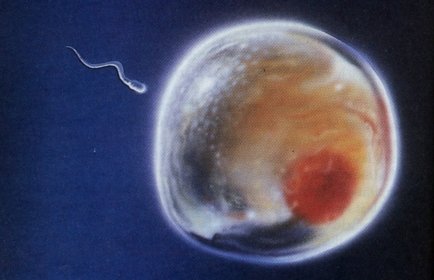It is the winter solstice as I write this, which according to Chinese medicine is the time of year that corresponds to the kidneys. During winter the energy in the environment descends into the ground and into the roots of plants. Many animals and insects follow this descending movement into the underground to hibernate. It is also the darkest time of year, when the days are short and the nights are long. The kidneys in Chinese medicine relate to: the water element, to the water in our body and all of the ways water is present in our environment, to the root energy in our body, our subconscious experiences, the colour of the night sky, black holes in the cosmos, the cosmic womb deep in our memory, our mother’s womb which is the first watery environment from which we emerge into our life on earth, the empty void and the fertile void in our bodies which births new life. In our body, the kidneys also relate to the ears, our bones and marrow, to the salty taste, our ancestral lineage, our reproductive system, the emotion of fear, feelings of awe, the aspect of our spirit known as the will power, and to a mysterious substance in the body named jīng in Chinese (精), often translated as “reproductive essence”, or simply “essence”. In this article I will describe some of these aspects of the kidneys in more detail.
Functions of the Kidneys
The kidneys in Chinese medicine are considered of foundational importance to the root energy in our body, providing solidity and strength through the bones and the will power. They provide an anchor for our connection to earth, our ancestry, but also our destiny through the relationship to our spirit. The kidneys are connected to our primal energy, survival energy, sexual and reproductive energy in the body.
“The kidneys are responsible for the arousing of power. Skill and ability stem from them”
The Secret Treatise of the Spiritual Orchard: A translation of Neijing Suwen - Chapter 8, by Claude Larre and Elizabeth Rochat de la Vallée
All of the major organs in the body have a relationship with the kidneys but the heart and the kidneys have an especially important relationship where they support each other through the interplay of the elements fire (heart - spirit) and water (kidney - jīng). The brain also has a deep connection to the kidneys through the spine and cerebrospinal fluid, and the hormonal systems in the body. The Chinese understood the kidneys to have similar functional roles to what we know about the kidneys from a modern biomedicine perspective, such as: water metabolism, filtration and detoxification of blood, as well as the inter-connected relationship with the adrenal cortex and the neuro-endocrine systems in the body. The cycles of developmental growth throughout life are related to the kidneys functioning. The bones, including bone marrow, and cerebrospinal fluid, the teeth, hair and skin growth and the deep cycles of development are governed by the kidneys function.
The Kidneys and Water
The kidneys correspond to water element (dynamic agent) in the Chinese system of 5 dynamic agents (heart – fire, spleen – earth, lung – metal, kidney – water). Water has particular qualities such as: gentleness, formlessness, mutability, and connects us to the origin and beginning of life. Water is our first experience of life as a baby developing in the womb. For new life to form in the womb, there is a meeting of watery fluid that takes place: the release of watery fluids bathing the egg meet with sperm which swim in the watery semen. This is a combining of kidney energy of yīn and yáng to produce new life. The kidneys, because they are embodied as a duality, also have a relationship to the fire element and the heart. So they are primarily connected to the water element, but are also infused with fire and warmth, and it is the fire and warmth which helps to generate healthy water metabolism in the kidneys.
Jīng - ‘Reproductive Essence’
Jīng is a fundamental substance in the body involved in the functioning of the kidneys. It is translated as “reproductive essence” or “essence”, which gives an idea of the importance and potency of this substance. It is a substance which could be described as both tangible and intangible. Tangible in that it is part of matter, and intangible in that it is like the quality of water, mutable and formless, and it has an alchemical nature which moves into the realm of consciousness or spirit. Jīng relates to the potential of the seed or egg.
Jīng is all of the creative and intelligent power inherent in a seed which unfolds into its own unique expression through a template, but also through interactions with the ecosystem it lives in. From a modern biomedical understanding of the body we can think of menstrual blood, ovum, semen and sperm as containing jīng. The quality of the eggs and sperm is governed particularly by the functioning of the kidneys. The cerebrospinal fluid is known to be the foundational matrix from which new life forms. Although the Chinese did not have the concept of cerebrospinal fluid, this can be understood to be symbolic of the Chinese understanding of the functions of jīng, and the Chinese understanding of the relationship of kidney to the brain. For the ancient Chinese, jīng was a kind a mysterious substance that had a deep relationship with another mysterious aspect called shén, translated as “spirit”. Jīng is understood to be relatively more tangible and dense, connected to the substance of the body and the characteristics of our ancestry, whereas spirit is something that is more light, ephemeral, connected to consciousness, our destiny and heaven. For the ancient sages, the alchemical meeting of jīng and shén in the body is described as enabling healthy longevity, clear consciousness, and the embodiment of our spirit.
The Ears and the Kidneys
The ears are the sense organ which have a deep relationship with the kidneys. The ears as a sense organ are highly sensitive and help us to hear sound, the silence beyond sounds, to perceive danger or threat in the environment, to connect deeply with others through language, voice, melody, prosody and emotional and bodily expression. The ears have a deep connection to the heart, to the reproductive essence and our early developmental life as a fetus, we see this very clearly in image of the ear representing a baby in the womb. For this reason, the ear is considered a micro-system of the whole body. Ear acupuncture is a particular style of acupuncture which uses the ear as a micro-system to treat all parts of the body, and to treat neurological patterning which develops in-utero. In this way the ear is symbolic of the kidney’s relationship to reproductive essence and the deep foundational or root energy in the body which provides support for all the other organs.
Foods and medicinals related to the Kidneys
In Chinese medicine the flavour which relates to the kidneys is salty. When we think of salty flavour we often think of foods which come from the ocean, such as: sea salt, seaweed, fish, shellfish, roe. Other foods which are related to the kidney include animal products such as meat, eggs, bone marrow. The kidneys are also nourished by a variety of plant foods, particularly: beans, legumes, seeds, and nuts but also some vegetables. Foods which are black in colour are said to particularly resonate with the kidneys. The roots of many plants are also considered to exert medicinal effect on the kidneys, this is due to the roots of plants corresponding symbolically to the root energy in the body. The root of the Chinese foxglove plant (Rhemania glutinosa - Shú dì huáng), is commonly used for fertility, menstruation and menopause to nourish the kidney yīn.
In Chinese medicine the kidneys are divided into kidney yīn and kidney yáng due to their duality. There are foods and medicinals (plant, mineral and animal substances) which are general tonics for the kidneys, and there are foods and medicinals classified into kidney yīn and kidney yáng tonics. Asparagus, for example is a food which has a medicinal effect on the kidney yīn and helps to generate fluid in the body. Kidney beans and black beans have an energetically nourishing effect on the kidneys in general. An interesting food which specifically nourishes the kidney yáng are walnuts, they provide warmth and nourishment to the brain and marrow. This is a food which looks like a brain with two hemispheres clearly defined in the walnut, and it is an example of a commonly held theory in indigenous and ancient medicine throughout the world, known in west as the “doctrine of signatures”, or in Chinese medicine as the idea of the resonance of qi, the resonance of things in nature which look the same, and the principle of harmony in nature. The ancient Chinese deeply understood about the relationship of the kidneys to brain function, and this is reflected in modern science through the understanding of the importance of omega-3 fatty acids for myelination of nerves and brain health.
Water is of course highly important for the body, with a large percentage of the body being made of water. The kidneys really appreciate good quality mineral or spring water which is filtered by the life force of the minerals deep in the earth.
The emotion of fear
The kidneys relate to the emotion of fear, fright and shock. This may manifest in quite a physical way through the lower orifices, such as having urgent urination or diarrhoea due to situations which may evoke fearful memories from the subconscious, for example speaking in public, fear of flying on a plane, fear of heights, or the fear of spiders or snakes. When fear is suppressed in the body a range of physical, emotional and mental symptoms can manifest. Sometimes symptoms of adrenal or chronic fatigue can occur when there has been a period of intense stress where the fear response in the body has not been processed to allow for integration of fear. Fear is a normal healthy emotion when we are able to process it and listen to what it may be asking of us in any given moment. Death teaches us about fear, letting go, surrendering, and the kidney is symbolic of the processes of death, but it is also symbolic of the process of birth and letting new life emerge. When we are a baby we must let go of the watery world of bliss and enter the world of earth where we experience fear and pain, we all encounter this to varying degrees. For new life to emerge there must be a dying or transformation process to facilitate the development of something new, whether that takes the shape of a new form (e.g. a seed growing into a seedling) or a new experience in one’s consciousness (e.g. a new experience of feeling love in the body).
When the kidney energy is not repeatedly activated by fear and is expressing balanced health, there are feelings of deep connection to all of life, feelings of awe and wonderment, deep feeling of content and comfort in the body, and what might be called a feeling of the embodiment of self, or in other words the meeting and infusing of our spirit in the flesh of our body, so that our souls experience of living is felt in the present moment.
The Spirit or soul Aspect of the Kidneys
In Chinese medicine our spirit (shén) is described as having different soul aspects which correspond with the 5 primary organs in the body (Heart, Lung, Liver, Spleen and Kidney). The aspect of the spirit related to the kidneys is called zhì (志) in Chinese, and has been translated as will. It is the aspect within us that is focused, with intention, with aspiration, with ambition for what we desire to bring forth in life.
“In the character for zhì, the lower part is the heart/mind (心) and above, a character that is classically explained as a small shoot (士) . This represents something that can form a base from which it is possible to grow and develop in the right way”
Aspects of the Spirit: Hun, Po, Jing, Shen, Yi, Zhi in Classical Chinese Texts - Elizabeth Rochat de la Vallée
Within the character for zhì we see the character for heart. Our heart is required to be present and in communication with our Kidneys for our will to be expressed in a way that is sensitive and in harmony with our self, and those around us. This is a life-long learning for most of us, and connects to the dynamic of love and fear, or love and power… love and mercy.
“The quality of zhì (will) is not only measured by its strength, but in the direction in which it orientates the life, thoughts and desires”
Aspects of the Spirit: Hun, Po, Jing, Shen, Yi, Zhi in Classical Chinese Texts - Elizabeth Rochat de la Vallée
We may have strength and intention in a particular direction, for example for power, wealth, prestige, revenge, fame, or we may have intentions and aspirations which have a kind of humble quality and evoke the water element qualities of softness, surrender, going with the flow, respecting others, opening the heart to the principles of heaven. Sometimes we may just be in a place of trying to survive, to stay alive when we are faced with disaster, no home, poverty or famine. To want to live, to want to survive in the face of suffering, is a core quality of the kidney spirit. The openness to death, when it calls us, is also an aspect of the kidney spirit. These are all possible ways the spirit aspect of the kidney may be manifesting in the life of our body.
NOURISHING THE kIDNEYS
The kidneys can be nourished by taking time for quiet space or activities, for rest and sleep. They appreciate deep sleep to support healthy sleep cycles which are in closer rhythm with the sun’s setting and rising. Staying warm if one is sensitive to the cold can help to minimize cold affecting the kidneys. The kidneys may be nourished also through food, herbal medicine, water, sexual empowerment, working through trauma, emotional vulnerability, letting go, softening and contentment in life. Being in water, whether that is in the ocean, lake, river, or hot mineral pools helps to nourish and calm the kidney (unless there is a fear of water, or creatures in the water that is!). The kidneys may also be spiritually nourished by an ongoing contemplation of ones direction and intention in life, and exploring ways to express and embody this in oneself.
























